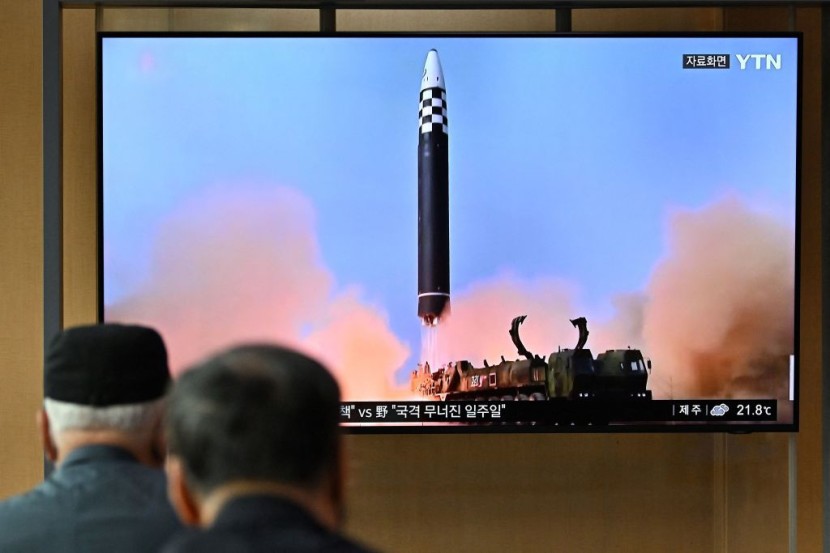Defense officials from the United States, South Korea, and Japan have established a new system for exchanging information on ballistic missile tests conducted by North Korea. The news comes on the heels of a declaration that by the end of the year, the three nations will have completed a trilateral multi-year exercise plan.
Trilateral Negotiations

US Defense Secretary Lloyd Austin took part in trilateral negotiations with South Korean and Japanese colleagues, Shin Won-sik and Minoru Kihara, as reported by Nikkei Asia. Austin and Shin participated from the Defense Ministry in Seoul, while Kihara joined online from Japan's capital of Tokyo.
The three leaders reportedly addressed the rising danger posed by North Korea's nuclear and missile development, according to a statement published by the US following the meeting. Pyongyang's launch of a spy satellite was criticized for allegedly going beyond the resolutions of the United Nations Security Council.
The military chiefs agreed at the hybrid format meeting that the trilateral exercise plan should be completed by the end of the year, maintaining momentum for more operational cooperation against North Korea.
The multi-year plans, as per a senior US military official who spoke to reporters, would concentrate on the marine and air domains. Last August, the three nations' leaders met at Camp David to formulate a strategy for future joint exercises.
Exchange of Ballistic Missile Test Data
Defense officials from all three nations have committed to implementing a system by the end of the year to facilitate the sharing of real-time information on North Korea's missiles, as was agreed upon in November 2022.
According to Bloomberg, the South Korean military and the Japanese Self-Defense Forces will integrate radar equipment via the US Indo-Pacific Command, enabling Seoul and Tokyo to reduce blind areas in Pyongyang's missile activity. Notably, the US has long engaged in bilateral real-time data sharing with South Korea and Japan, but neither Seoul nor Tokyo have done so.
South Korean radar networks are closer to the North; therefore, they have fewer blind areas due to the Earth's curvature. South Korea can also identify and track missiles earlier in the launch process than Japanese radar.
Meanwhile, Japan has Aegis-equipped warships in the Sea of Japan that can keep an eye on Pyongyang's submarine-launched ballistic missiles (SLBM). As a means of guaranteed retribution against the US, North Korea has advanced the development of SLBMs.
"This kind of ability to share information and have a common operating picture is a really important part of interoperability. So, it'll open up a lot of doors for a lot of different types of cooperation," a second US official stressed.
The annual security summit between the US and South Korea will take place on Monday, November 13, and cooperation between North Korea and Russia will be a major topic of discussion.
North Korea has remained quiet on the military front since the most recent trilateral engagement began.
For the last two months, North Korea has refrained from launching ballistic missiles, and the country has yet to attempt to lift off a military satellite for the third time as promised.
© 2025 HNGN, All rights reserved. Do not reproduce without permission.








